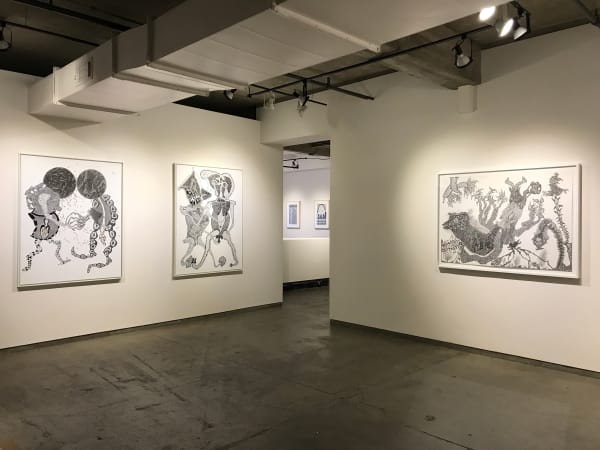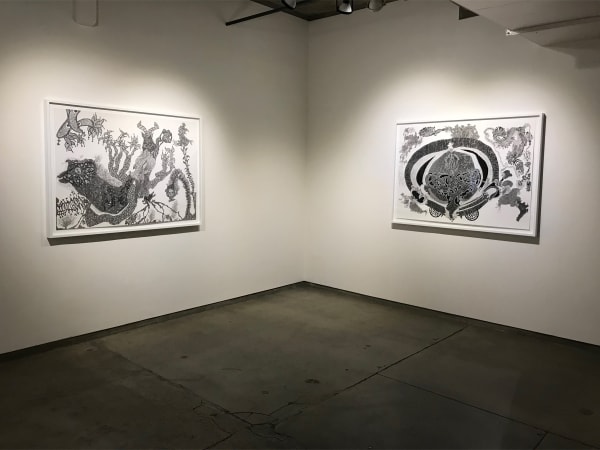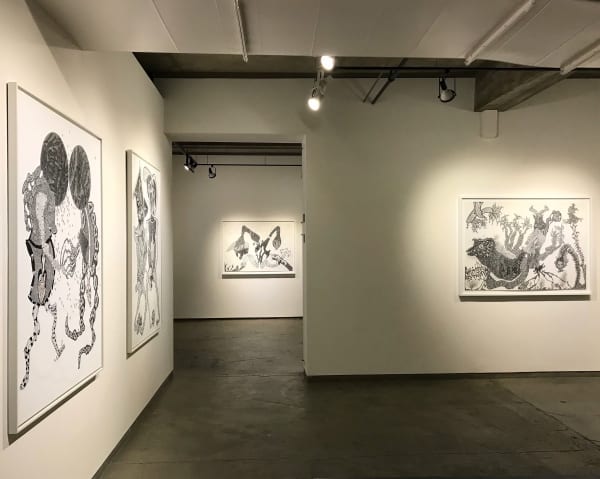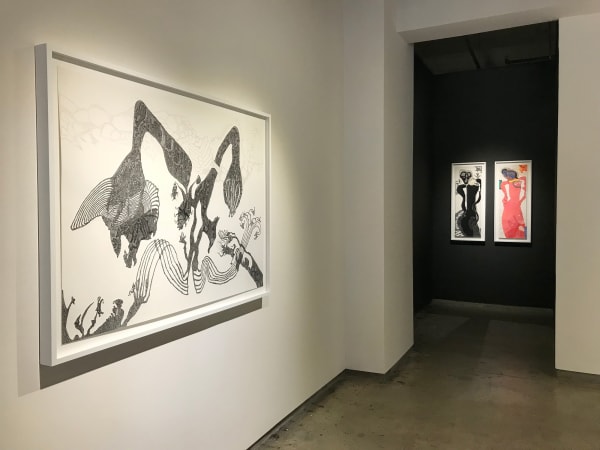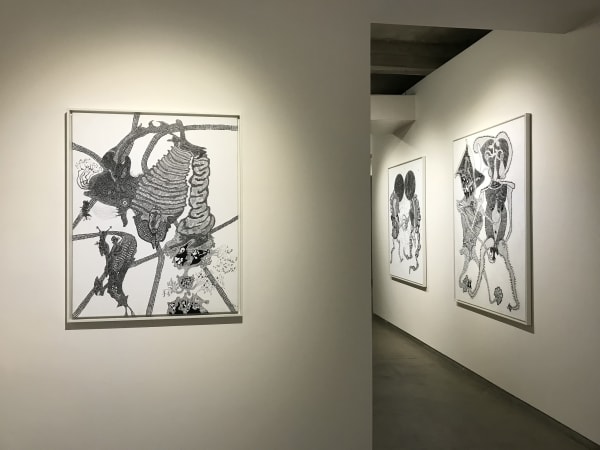Alfred Neumayr: Mythical Creatures
When you ask Alfred Neumayr about the meaning of his art, he will reply that he draws nothingness. What is nothingness? To Neumayr nothingness is the origin. It can be everything at once, like the Nirvana, a simple object, or the universe, nobody knows. But it is not to be confused with nothing. To him, it is all about movement, the artistic activity itself. The incredibly disciplined draftsman reveals that first and foremost he needs to keep busy: “I don’t really like to call myself an artist, it’s a funny term,” he says: “I’m here to do something meaningful. Simply put, it’s movement what I do. I also move when I run; when I draw I move myself and the pen and turn one thing into another. Pen and ink and paper metamorphize into a picture. Sometimes it’s also a struggle, if the pen doesn’t do what I want …” The artist does not draw according to models, not even consciously experienced situations, but from within. Trying to draw nothingness is an endless inspiration for him.
Neumayr was born in 1958, in Tulln, Lower Austria. Upon graduating from high school, he completed a printing apprenticeship. He worked in this profession at the same company in Tulln for 33 years. A burnout obliged him to leave that job in 2005 and, that same year, encouraged by one of his friends, he produced his first painting. This was the initial start of his artistic pursuit, which developed in creative urges. Because he did not want to go back to his old job, he had to reorient himself. This orientation period lasted until 2011, when he started visiting the open studio program in gugging daily through his social worker at that time. The open studio is a place for unbridled inventiveness, open to any person regardless of age, gender, and psychiatric condition, who wishes to embark on self-taught creation. Initially, Neumayr painted in acrylic and watercolors, experimenting with different techniques and formats. Gradually his interest for drawing increased, the lines got more delicate, the format bigger and bigger and the time exposure longer and longer. While drawing with pen and India ink, he is in a state of tension, but at the same time calm.
Neumayr’s fine—mostly in black and grey—India ink drawings spin carefully around the cardboard, canvas, or paper and steadily aspire to completion. Both completion and material play an important role in the artist’s life. While he is nervous and anxious during the painting process—as he does not know where the stroke of his pen will lead him—he is usually relatively satisfied with the end result and at ease. Regarding the material, Neumayr uses different canvases or cardboards; rare, normal paper or laid paper are also used. Sometimes he adds a little color with India ink or pencils. By chance, he has developed his very own unique technique, which is well reflected in his work “Totem.” While he once did an etching, he saw that the etching needle gives structure and he wanted to incorporate it into his works as a kind of refinement. That is why he stitches, scratches out, thins down, and pays special attention to the structure and form of his figures. The strokes of his different pens vary in thickness and connect into rhythmic structures; this effect makes the picture come alive. The resulting images resemble geographical formations, outer space, fantasy worlds, or Greek mythological creatures such as the skin-colored “Circe.” They are emphasized by meaningful titles, that he finds in dictionaries or that emerge from the artist’s surroundings. His sprawling representations are open to an infinity of interpretations and associations. Recently, more and more figural creatures prosper in his works, such as “Eve and Adam” or the “Eronauts.”
Whether at the Collection de l’Art Brut in Lausanne, in many private collections, at the Drawing Now in Paris, or in the premises of the galerie gugging, Neumayr’s work enjoys great attention. At first glance, his oeuvre looks abstract, somewhat akin to automation. Starting off at a random point, he allows his hand to guide him until he sees a motif among the innumerable lines, which he proceeds to develop. “I draw, because it satisfies me,” he says. “I did it before I joined the gallery and I would have done it if there had never been this cooperation. But I am happy when people say something good about my paintings. The sale and the success are not so important to me, but I’m interested in how the pictures affect others.”
It takes a lot of patience and endurance to draw nothingness.
— Irina Katnik
